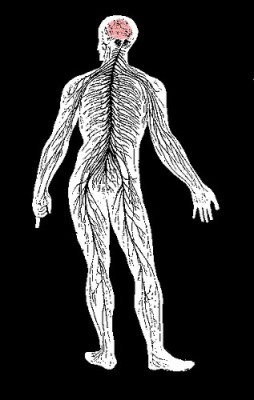Can Trauma Stay Trapped in the Body? Brainspotting Therapy Explained
Do you ever feel like trauma still lives in your body, no matter how much you’ve talked about it? For many people, difficult experiences can resurface as dissociation, performance blocks, anxiety, or a lingering sense of unease. Trauma isn’t always something we can simply “talk through.” Psychotherapist Stefan Walters explains how Brainspotting therapy and somatic approaches can help release what the body holds onto and why talk therapy isn’t always enough.
When Talk Therapy Isn’t Enough
Talk therapy can be incredibly helpful, but some experiences aren’t fully resolved through words alone. Trauma can stay trapped in the body because it was never fully processed at the time it happened. Often this is because we lacked the presence of an attuned other – someone safe to help us make sense of and release the experience. Without that support, the nervous system can hold onto trauma for years, even decades.
Signs trauma may be stuck in the body include:

By: J E Theriot
- Feeling dissociated or disconnected
- Sudden mood swings or emotional dysregulation
- Unexplained physical tension or restlessness
- A sense of being “stuck” despite therapy
If you recognise these signs, know that it doesn’t mean therapy has failed – it may mean your body is asking for a different approach.
The Role of the Nervous System
Books like The Body Keeps the Score by Bessel van der Kolk, along with polyvagal theory and somatic therapy, highlight how trauma impacts the nervous system. Trauma isn’t just about what happened – it’s about what couldn’t be processed at the time. This is why trauma often resurfaces in ways that feel beyond our control.
Social Baseline Theory: Why We Need Others
Research by psychologist Dr James Coan, known as Social Baseline Theory, shows that humans are wired for co-regulation. From birth, we depend on others to feed us, keep us safe and provide comfort. Our nervous system is designed to work in connection with others. When we feel disconnected or unsupported, everyday challenges feel much harder. Even climbing a mountain looks steeper when we’re alone compared to when we’re with a friend.

By: bm.iphone
Trauma as Incomplete Loops
Unprocessed trauma often remains in the body as an incomplete loop. A panic attack, for example, is the nervous system’s attempt to finish what couldn’t be completed at the time of the trauma. Animals naturally release this kind of energy by shaking or moving after stress. Humans, however, often suppress it, leaving the energy stuck in the body. Over time, this can manifest as mood swings, emotional dysregulation, or mental health symptoms that don’t seem to shift.
How Brainspotting Therapy Helps with Trauma
Brainspotting helps to access these unprocessed experiences held in the body. By using eye positions and joint attention, the therapist and client work together to locate and process stuck trauma. This process creates a safe and attuned relationship where the nervous system can finally complete its loops and return to regulation. It goes deeper than words alone, working directly with the places where trauma is stored.
The Power of Joint Attention
From infancy, we learn to feel safe through shared attention with caregivers – pointing at an object, laughing together, or simply being seen. Brainspotting draws on this principle. By focusing together on specific visual points, therapist and client create healing experiences that restore safety to the nervous system.
An Integrative Approach to Healing
While brainspotting is powerful on its own, Stefan Walters emphasises the value of working integratively. He combines approaches such as somatic experiencing, gestalt techniques like the empty chair method, and parts work. This inclusive way of working recognises that people are complex, made up of many parts, and embedded in wider systems – families, communities, and beyond. Therapy should meet the whole person, not just one part.
Moving Towards Healing

Stefan Walters – Systemic, Psychological Brainspotting Therapist
Trauma doesn’t simply disappear if left unprocessed – it builds up.
But with the right support, it is possible to release it, restore nervous system balance, and reconnect with a sense of safety and flow. Brainspotting offers one powerful pathway for this deeper healing.
If you’re struggling with trauma, anxiety, depression, or relationship issues, you don’t have to face it alone. Harley Therapy’s practitioners offer expert support in London and online.
Disclaimer: This blog is for information purposes only and should not be taken as medical advice. If you are in crisis or need urgent support, please contact your GP, local services, or emergency services immediately.





